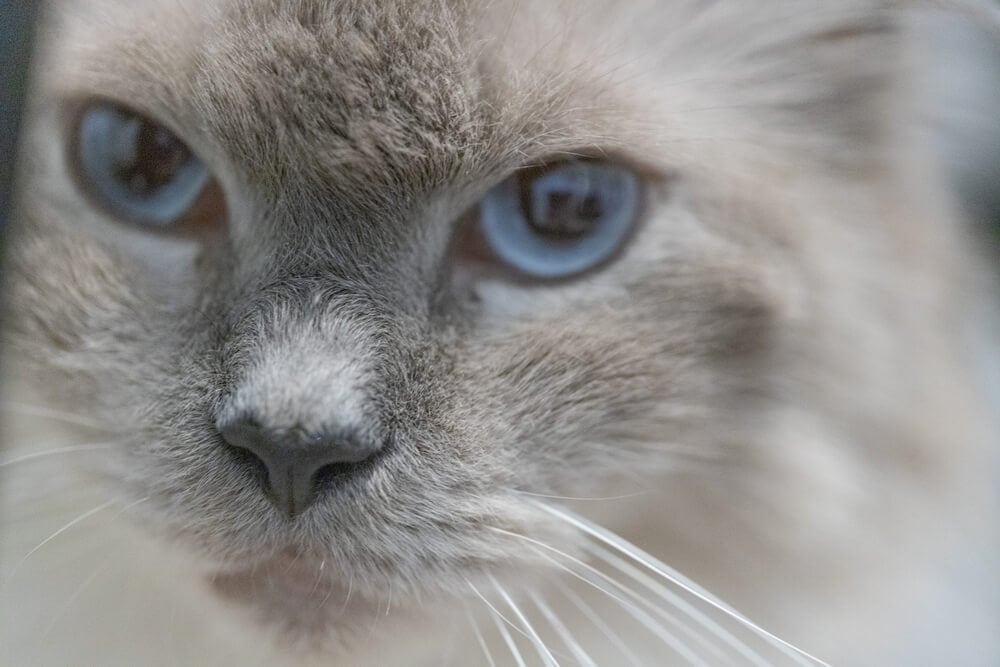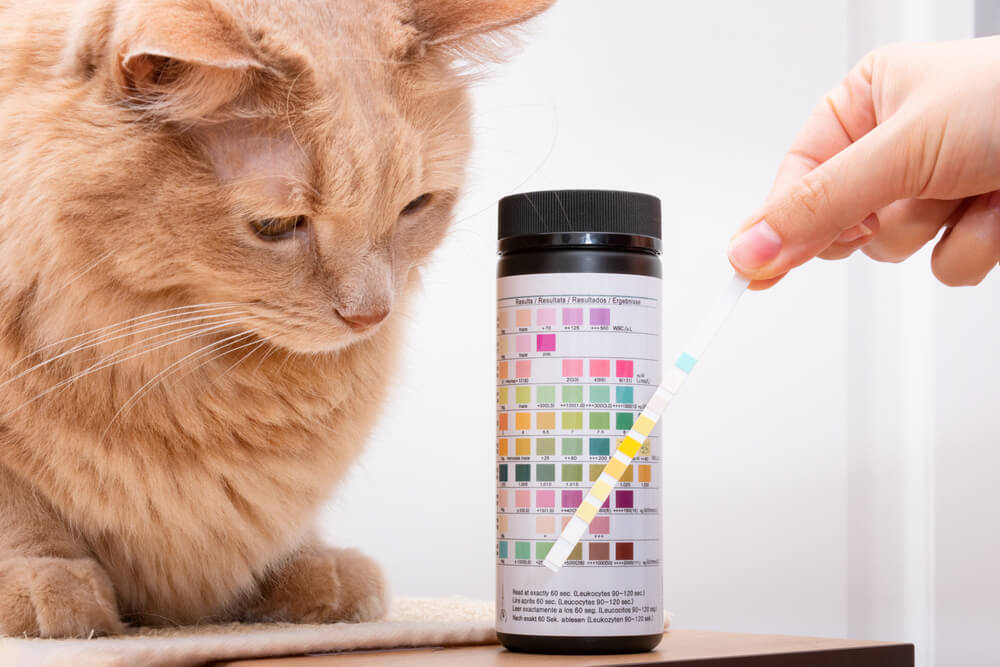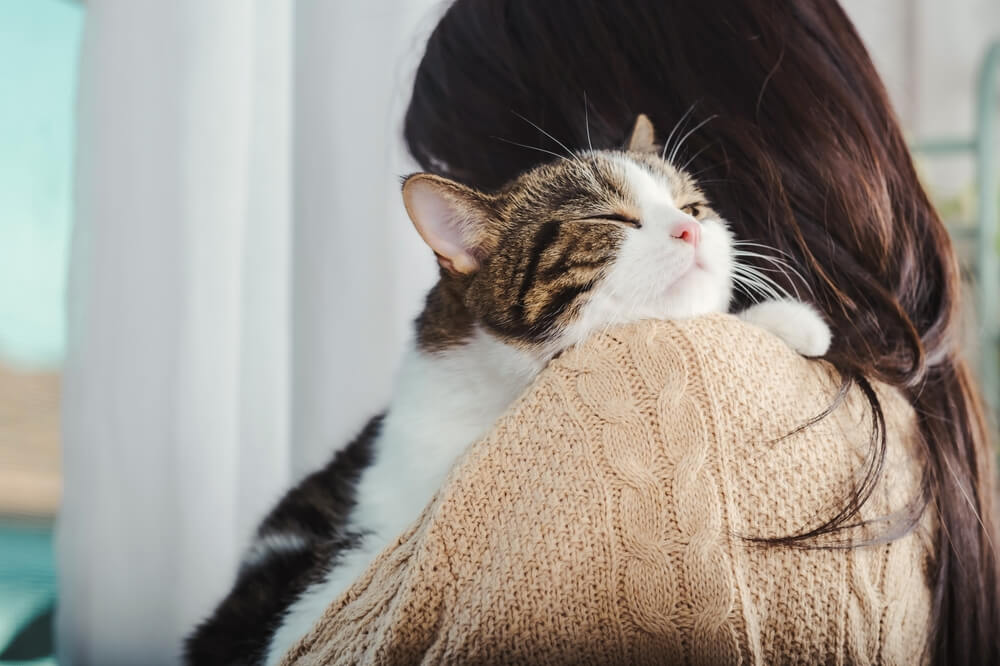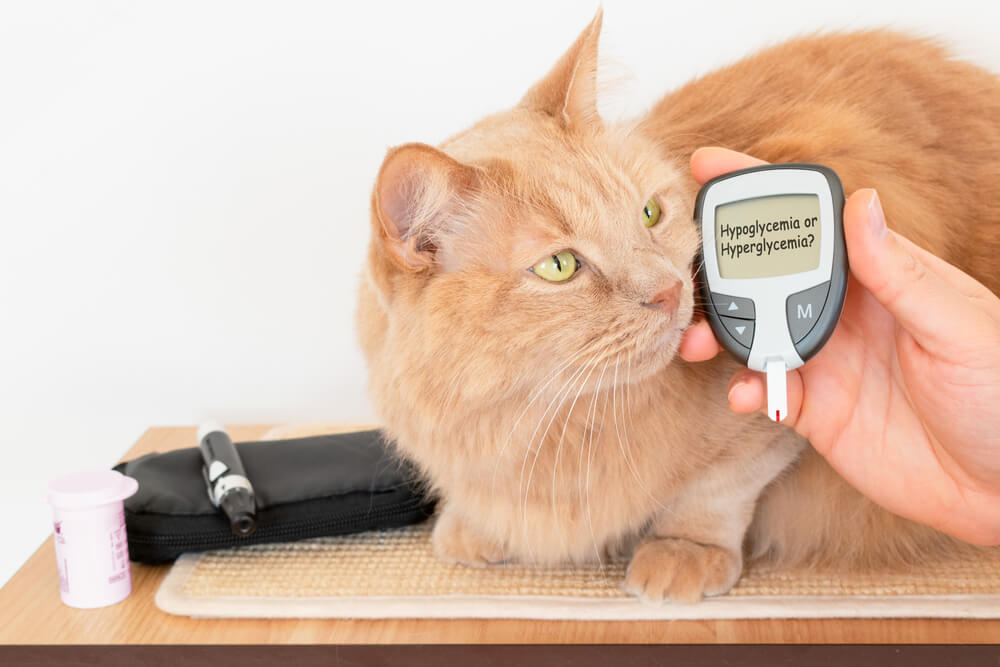
Thanks to advances in feline medicine, nutrition, and care, our beloved cats are living longer than ever. However, with longer lives come age-related issues, and one common condition affecting senior cats is dementia.
Dementia in cats? Really? Yep. Just like in humans, a cat’s brain can change as they age, leading to a decline in cognitive abilities.
If you have an aging cat, it’s helpful to be prepared for such conditions. But, what exactly is dementia in cats? What are the signs of dementia in cats? And can they get Alzheimer’s too? It’s tricky for a pet parent as it can be a difficult condition to accept and manage.
However, understanding the signs of dementia in cats, how to care for a cat with this condition, and whether there are any ways to prevent it can make a world of difference. So, to help, we’ve created this guide to help answer any panicking thoughts.
What Is Dementia In Cats?
Dementia, also known as cognitive dysfunction syndrome, is a condition in senior cats that affects their memory, critical thinking, behavior, and reason. 1
Can Cats Get Alzheimer’s?
Cats suffer from dementia rather than Alzheimer’s. However, the two conditions have similar effects on the brain.
What Are The Signs Of Dementia In Cats?
If you find yourself wondering, “Why is my cat walking around aimlessly?” or “Why is my cat asking to be fed right after eating?” and notice they’re generally acting a bit lost, they may be developing dementia.
Here are some common symptoms of dementia in cats:
- Acting disoriented or lost
- Lack of interest in playing
- Vocalizing, often at night
- Staring into space or looking at the walls for long stretches of time
- Forgetting to eat or drink unless food bowls are put in front of them
- Going to the bathroom outside the litterbox
- Changes in sleep cycle, being awake and active in the middle of the night
- Unusual interactions with other pets or family members (becoming more needy, more reactive, or more aloof)
- Forgetting that they have just been fed and asking to eat again
- Poor grooming habits
- Sleeping more than usual
Causes Of Dementia In Cats
Feline dementia, or cognitive dysfunction, occurs as cats age and a protein called beta-amyloid builds up in the brain. This buildup leads to brain damage, reduced blood flow, and the breakdown of neurons, which are responsible for processing information and sending commands. As neurons deteriorate, a cat’s memory, thought process and behavior are affected.
At What Age Can A Cat Get Dementia?
Senior cats of any breed can develop dementia. The feline brain starts to decline at around 10-15 years old so cat dementia is more likely to occur at this age.
Treatment Of Dementia In Cats
Unfortunately, the brain changes associated with cognitive dysfunction in cats are not reversible.2 However, there are lots of ways to help manage some symptoms and take care of your beloved cat.
If you start to notice the above symptoms, you should take your cat to the vet to get an official diagnosis ensuring their behavior isn’t caused by something else.
How Do You Comfort A Cat With Dementia?
Establish a routine – Stick to a consistent daily schedule for feeding, play, and rest to reduce confusion and anxiety.
Create a safe, familiar environment – Keep your home clutter-free and avoid moving furniture or your cat’s belongings to help them navigate more easily.
Use nightlights – Install nightlights to help your cat move around during the night if they become disoriented in the dark.
Offer mental stimulation – Engage your cat with puzzle toys, interactive games, or gentle play to keep their brain active.
Provide extra comfort – Offer soft, cozy bedding in a quiet area where they can rest undisturbed.
Use calming aids – Try feline pheromone diffusers or sprays to help reduce anxiety and promote relaxation.
Offer consistent cues – Use verbal cues or gentle touch to guide your cat back to familiar places like their bed or litter box.
Give extra patience and affection – Be gentle and patient, offering comfort through petting, soothing words, and spending quality time together.
Monitor diet and hydration – Ensure they eat well and stay hydrated, and consult your vet about special dietary needs for cognitive health.
Consult your vet regularly – Work with your veterinarian to manage symptoms and explore any medications or supplements that could improve your cat’s quality of life.
Prevention Of Dementia In Cats
There’s no clear way to prevent dementia in cats, but there are some things you can do to delay the onset of symptoms. Providing play opportunities, for example, increases activity levels, provides mental stimulation, and promotes the growth and survival of neurons.3 Providing your cat with a balanced diet, playing with them, and keeping up with vet checks from an early age can reduce the risk of them developing dementia or at least reduce symptoms in later life.
How Long Will A Cat Live With Dementia?
The length of time a cat can live with dementia depends on several factors, including:
- Age of onset
- Severity of symptoms
- Rate of disease progression
- Other illnesses
A cat could live another 5-10 years after diagnosis but some cases progress faster than others, and their days sadly become numbered.
In the end stages of dementia, cats may lose interest in everything they once enjoyed. As a pet parent, this can be heartbreaking to witness, as your cat may experience both physical and mental suffering. Sadly, this often signals that their time is near. The most important thing you can do is ensure they are as comfortable and loved as possible.
We uphold the highest editorial standards when creating the authoritative content pet parents rely on and trust.
Every piece of clinical content on the Cat Food Advisor is reviewed by our certified Veterinary Advisory Board, which consists of licensed veterinarians and medically certified specialists.
Our reviews are completely independent; we are not paid by any pet food company to promote their products favorably. We do not accept money, gifts, samples or other incentives in exchange for special consideration. For more information see our Disclaimer & Disclosure page.










